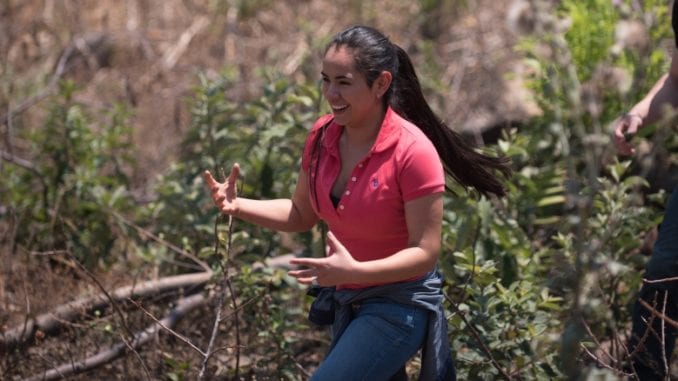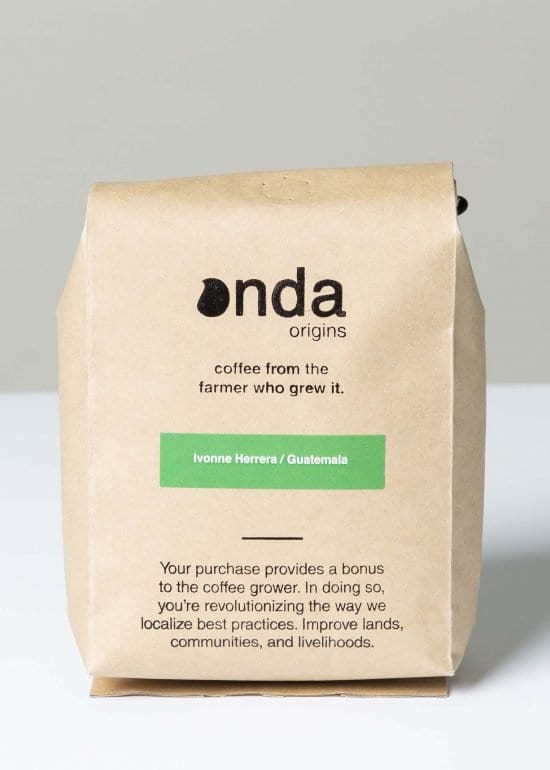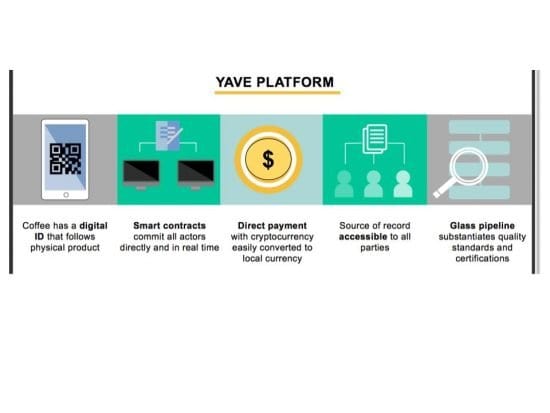
Blockchain is the new buzzword in tech—but can it change the way we buy, sell, and source coffee?
BY ASHLEY RODRIGUEZ
BARISTA MAGAZINE ONLINE
Photos courtesy of Onda Origins
Blockchain is a term you’ve probably heard—it’s popular in the tech sector, but there are folks who say that blockchain can change the way we buy, sell, and source coffee.
Onda Origins is one of those groups. “Onda Origins was founded to address a systemic illness in the coffee supply chain; the pricing model for farmers,” shares Scott Tupper, who founded the Seattle-based company with his brother, Paul. Onda uses blockchain to create traceability for farmers that is both secure and transparent by attempting to untether farmers from opaque coffee contracts and the C market. “As we’re all aware, price is a function of a global futures exchange market, ‘the commodity market.’ The commodity market is an efficient vehicle for price-finding, but it’s not working: People are leaving farming because the prices offered don’t cover the costs of production,” Scott shares.

To understand how Onda and other blockchain companies like Beyco do this, you have to understand how blockchain works. Put simply, it’s an online ledger that uses cryptocurrency (think bitcoin or another digital currency) that makes information both accessible (anyone has access to a product’s ledger) and secure because it uses cryptocurrency. Theoretically, you could use blockchain to trace a coffee’s value from farm to consumer—and the information would be secure and readily available to anyone.
To explain, Scott uses an analogy: “Do you remember the game ‘telephone’ from your elementary school days?” asks Scott. “In that game, the teacher would feed one student a sentence, who would have only one attempt to whisper it to the next student, who would do the same to the next student. So on and so forth the game went, until the message had been passed all the way down the line and the last student returns to the teacher to attempt to repeat the original message. The result, as you probably remember, was often a message that sounded nothing like the original.”
Scott uses this analogy to liken coffee pricing to a game of telephone, where messages can get confused and, as a result, farmers suffer. “The global supply chain, as it exists today, is a game of telephone. Not only does the end consumer have a jumbled message about his or her fish, chocolate, or T-shirt; most of the businesses in the middle of the supply chain are navigating confusing narratives from their providers and clients as well.”
Blockchain doesn’t change the message, but ensures that the original message gets delivered throughout the supply chain. Scott explains using the telephone analogy: “As the teacher tells the secret message to the first student, they stop them from going to the next student. The teacher distributes a folded up, written copy of the message to every student in the room, and each student is allowed to read their copy before the first kid comes to the next one with the message. They fold their paper back up, and the game starts. Unsurprisingly, the message the teacher then whispers is fact-checked along down the line and we wind up with the right answer.” To do this with coffee, Onda uses a platform called Yave to catalog information that is readily accessible to anyone in the supply chain.

Using blockchain, Onda attempts to answer a question we’ve been working on in the specialty-coffee industry for decades: How do we get more money back to farmers? Onda answers this question by allowing all actors, not just farmers, access to the market at all stages—because coffee gets catalogued at every step of the supply chain, anyone can see at what point and at what price coffee is traded. Ideally, the confusion created at every stage of coffee trading then is erased, and all information about a particular copy is both public and secure. “Farmers stand to gain a lot from blockchain because by the very nature of its technical architecture it formalizes them in the market,” Scott shares. “By merely validating farmers’ identities as members and stakeholders on this ‘network of coffee,’ we’re taking a huge step forward.”

